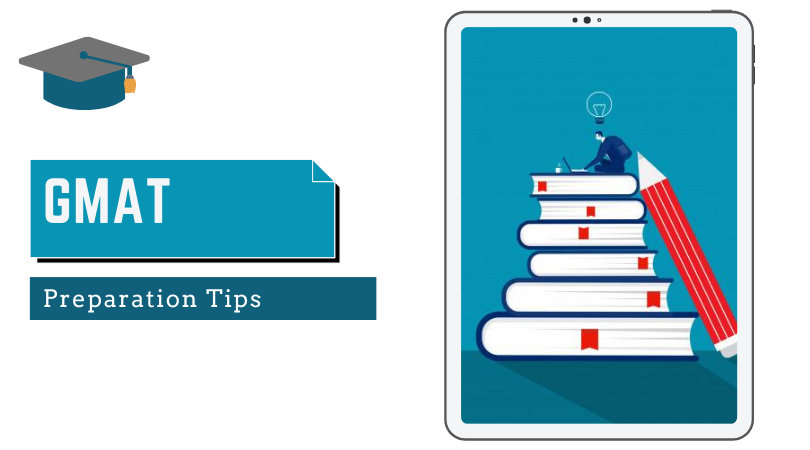The GMAT exam is a computer adaptive test (CAT) conducted in English. Nowadays, it contains four parts: Analytical Writing Assessment (AWA), Integrated Reasoning (IR), the Quantitative section, and the Verbal section. It has been modified as it has developed, and some parts (e.g. testing on antonyms and directed memory) have been scrapped. The last major change occurred on 5 June 2012, when Integrated Reasoning (IR) was added to the test. GMAC explain:
The GMAT exam measures verbal, mathematical, integrated reasoning and analytical writing skills that you have developed in your education and work. It does NOT measure your knowledge of business, your job skills, specific content in your undergraduate or first university coursework, your abilities in any other specific subject area or subjective qualities such as motivation, creativity, and interpersonal skills. A competitive score in the Graduate Management Admission Test (GMAT) is a requirement for admission, and often also for scholarships, to most top international business schools for MBA, Executive MBA, and specialized Master’s degree programmes. Recently the Graduate Management Admission Council (GMAC) – the owner of GMAT– introduced a new exam for Executive MBA applicants – Executive Assessment – but the GMAT is still widely used for both MBA and EMBA programmes.

Study Hours devoted to preparation:
According to surveys by GMAC successful GMAT test-takers invest about 100 hours of preparation in the exam. This time is usually split between guided preparation (a course or individual tutoring), self-study and practice. Anticipate time for the second test with its associated preparation.
Guided GMAT preparation can be provided in a course (traditional classroom or online format) or in individual tutoring sessions (face-to-face or online). The choice depends on your learning style, your budget and the availability of preparation options in your location.
A typical GMAT prep course is about 40 hours. They can span two or three months depending on the intensity of the course. For example, if you attend one GMAT class of four hours every weekend for two months you will have 32 study hours of guided preparation. Of course, these will be coupled by at least two hours per week of self-study which comes to almost 50 hours that you will commit to GMAT over these two months.
Test prep experts recommend that self-study and practice should be evenly distributed during the week, instead of being squeezed into the weekend only.
All you need to devote is just 3 months to score good marks in your exam :
Week 1: GMAT Basics: Total Time: 6 Hours
- The very first thing that one should consider while preparing for the Graduate Management Admission Test is that one should familiarize yourself with the GMAT content and format.
- Take an overview of question types and sections that are asked most of the time in the exams and for this, we suggest you use Official Guide and/or free resources. (Time Suggested: 2 hours)
- Candidates can also practice from a diagnostic test or from an official GMAT computerized adaptive test, using the Official GMAT Prep Software. (Time Suggested: 3 hours and 30 minutes)
By doing this, you will get your strengths and weaknesses as where you are lacking and which sections were more challenging for you. Make a list of sections that you need to revise again. (Time Suggested: 30 minutes)
Week 2: Verbal Section: Total Time: 10 Hours
- The second week is for GMAT verbal section preparation and candidates need to practice it more as this section contains the little harder. If you’re making errors, then the questions should get a little easier. (Time Suggested: 2 hours)
- Build your knowledge of sentence correction questions. (Time Suggested: 4 hours)
- Read comprehension passages and questions which will make your command .in solving questions of the test very quickly. (Time Suggested: 4 hours).
Week 3: Quant Section: Total Time: 10 Hours
- After giving proper time to the verbal section, put your third week for the Quantitative section by preparing it from the best resource any of your choice. (Time Suggested: 1 hour)
- Review GMAT Math strategies, facts, definitions, and formulas. (Time Suggested: 3 hours)
- Put extra efforts on developing your knowledge in foundational algebra skills and concepts. (Time Suggested: 2 hours)
- Practice questions related to foundational geometry concepts and go through some geometry drills and practice question sets. (Time Suggested: 2 hours)
- Word Problems, solve some questions related to this topic which is also asked many times in this section. (Time Suggested: 2 hours)
Confused about GRE or GMAT for MBA? Get your confusion clear
Week 4: Check Your Progress: Total Time: 10 Hours
- Put your week 4 for checking the work that you have done in the previous two weeks by practising full-length computerized adaptive practice test. (Time Suggested: 3 hours and 30 minutes)
- Review your practice exam results. (Time Suggested: 2 hours and 30 minutes)
- After that, students must give your time to practice GMAT Online Mock Test. (Time Suggested: 4 hours).
Read Here, How to prepare for GMAT Exam?
Week 5: Verbal Review: Total Time: 10 Hours
- Build your knowledge of reading comprehension questions. (Time Suggested: 2 hours and 30 minutes)
- Build your knowledge of Critical Reasoning questions. (Time Suggested: 4 hours)
- Practice GMAT verbal questions. (Time Suggested: 3 hours and 30 minutes)
Week 6: Quant Review: Total Time: 10 Hours
- Build your knowledge in number properties. (Time Suggested: 2 hours)
- Build your knowledge of sets. (Time Suggested: 2 hours)
- Practice and build your knowledge of data sufficiency questions. (Time Suggested: 3 hours)
- Practice and build your knowledge of problem-solving questions. (Time Suggested: 3 hours)
Week 7: Check Your Progress: Total Time: 8 Hours
- Take a full-length computerized adaptive practice test. (Time suggested: 3 hours and 30 minutes)
- Review your practice test results. (Time suggested: 2 hours)
- Practice question types that you struggled with using customized quizzes. (Time suggested: 2 hours and 30 minutes)
Week 8: GMAT Essay (Analytical Writing Assessment): Total Time: 6 Hours
- Review strategies on how to approach the AWA section. (Time suggested: 3 hours)
- Practice with AWA prompts. Write sample GMAT essays. (Time suggested: 3 hours)
Week 9: Integrated Reasoning: Total Time: 6 Hours
- Read the GMAT Official Guide 2018’s chapter on the integrated reasoning section for tips and strategies. (Time suggested: 3 hours)
- Practice real integrated reasoning questions using the official GMAT IR prep tool. (Time suggested: 3 hours)
Week 10: Check Your Progress: Total Time: 10 Hours
- Review verbal concepts based on your performance on recent practise tests and practise question sets. (Time Suggested: 2 hours and 30 minutes)
- Review quant concepts based on your performance on recent practise tests and practise question sets. (Time Suggested: 2 hours and 30 minutes)
- Take a full-length computerized adaptive practice test. (Time Suggested: 3 hours and 30 minutes)
- Review your practice test results. (Time Suggested: 1 hour and 30 minutes)
Week 11: Concept Review: Total Time: 10 Hours
- Based on your performance on recent practise tests and quizzes, review verbal concepts you find challenging. (Time suggested: 5 hours)
- Based on your performance on recent practise tests and quizzes, review quant concepts you find challenging. (Time suggested: 5 hours)
Week 12: Rest and Review: Total Time: 4 Hours
As exam day approaches, I recommend that you rest as much as you can. (Time suggested:4 hours max)











